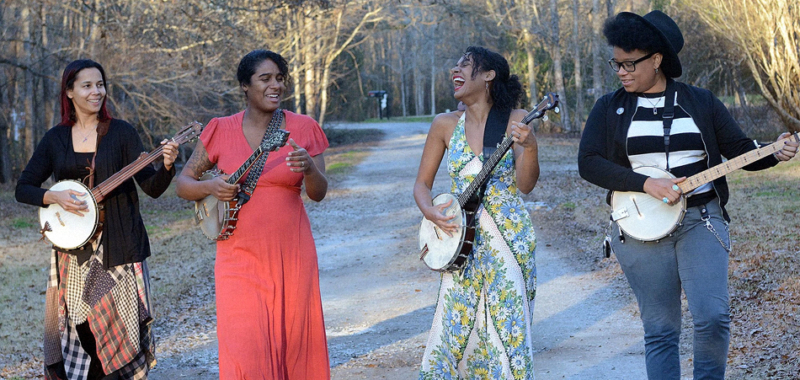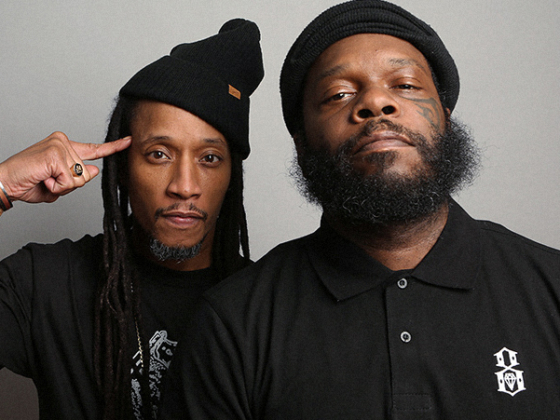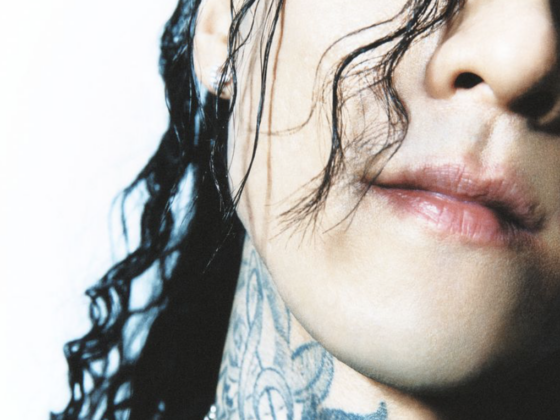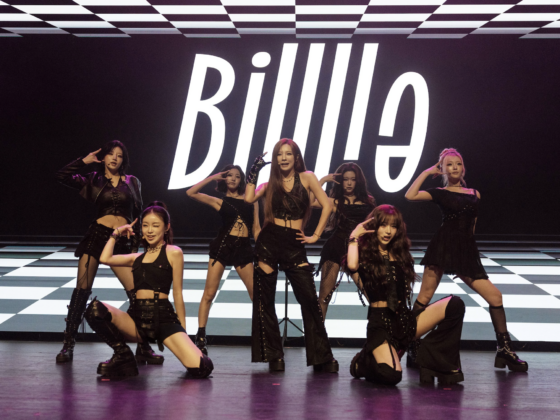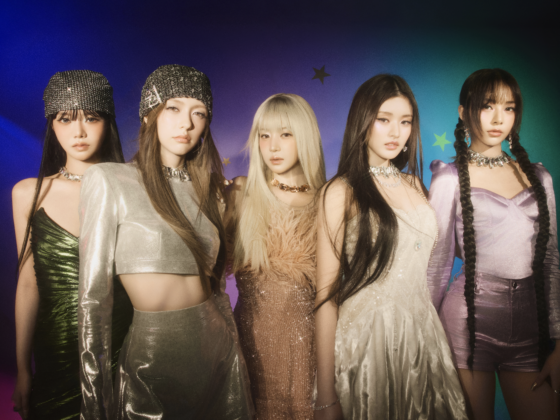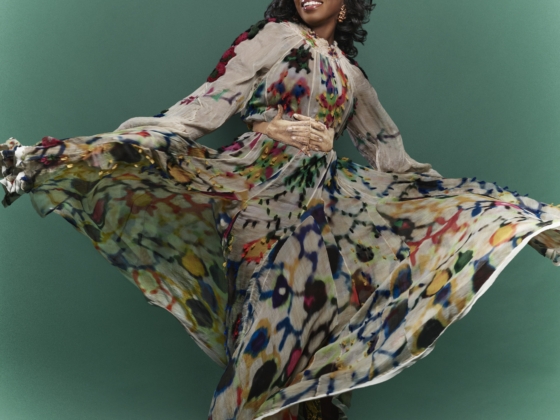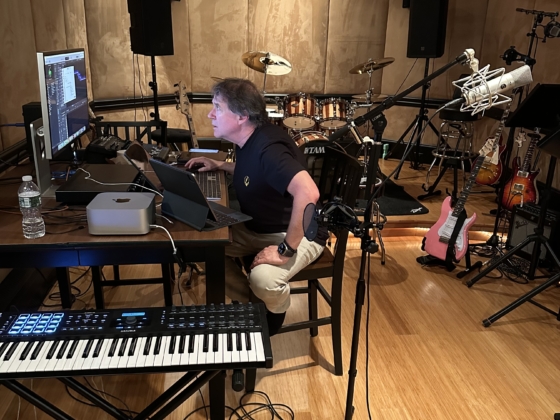Last Friday marked the release of a historic album, Songs of Out Native Daughters, the inaugural venture of supergroup Our Native Daughters. Helmed and formed by Rhiannon Giddens (whose innumerable previous projects are highlighted by the Carolina Chocolate Drops and a beautiful stint on CMT's country soap Nashville), this band of four extraordinary black women comprises Giddens, Amythyst Kiah, Leyla McCalla, and Birds of Chicago singer Allison Russell. According to Amythyst Kiah, when Giddens sent out an email pitching her idea for Songs of Our Native Daughters, signing on was a no-brainer. "I don't think that black female singer/songwriters, banjos and slave narratives have been put together [on an album] in recent memory. I thought it was so compelling and remarkable an idea, I immediately wanted to be part of it in any way I could be. It's obviously groundbreaking from an educational, historical and cultural aspect, but it's also a deeply personal album for all of us," she tells me over the phone. At its heart, this project is a collection of masterfully written songs which examine with microscopic clarity the continued horrors of slavery and racism through the vehicle of bluegrass, folk and Americana.
In a 2017 piece for Paste Magazine, musician and writer Kandia Crazy Horse wrote: "Black Americana is a term that most readily conjures imagery of slave-era memorabilia rather than a subsect of contemporary music. Conversely, 'old-timey' is a catchall term that masks a history of blackface minstrelsy and certain appropriations of black vernacular culture."
I'm a long-time lover of bluegrass and roots music, and I'm also white. My education in the genre when I was young consisted of mostly white artists. However, I was not shocked when I learned that some of the most fundamental hallmarks of Americana and roots music originated in the transatlantic slave trade. Although influences on modern Americana come from the fusion of many cultures, the genre has spent veritable decades dominated by white men. The country music community went up in arms when Beyoncé joined The Dixie Chicks on stage at the CMA's in 2016, and Time wrote an article back in 2013 on the introduction of the banjo into pop music.
While the Time article mentions the African gourd instrument from which the banjo is derived, this history is afforded barely a sentence; white folk can acknowledge the banjo's origins, but not without centering its popularity around white artists. The cruel and sickening irony of this, of course, is that Americana, country, and bluegrass could not exist as it does today without the influence of African slaves.
Laurent Dubois' book The Banjo: America's African Instrument chronicles the history of the banjo's journey from Africa on slave ships in the 18th century; in America, slaves would fashion these twangy string instruments of their homeland from memory. When I ask Kiah about finding her own place in the banjo-picking world of Americana, she says: "I've always been the one black kid in the class or friend group, so it wasn't unfamiliar territory, but I was usually around people who were a little more open-minded. So I came to find that sometimes and in some parts of the bluegrass circle, there seemed to be some people who were resistant to my presence."
Songs of Our Native Daughters refuses to allow comfortability. The subject matter is bleak but the conversation is so necessary that it resists ignorance—we can no longer sweep this under the rug, and Kiah said it best when she asked me "what better a way to start a conversation than to disarm people with music?"
On "Mama's Cryin' Long," Giddens' angelic wail recounts a harrowing story of a slave's rape and brutal murder by a plantation owner, told through the eyes of her watching child. "Mama's in the tree/And she won't come down/Mama's flyin' free/And she can't come down," the callback goes. "I don't think any of us got out of that studio without crying at least once," Kiah tells me of recording. "That's a particularly brutal song because it's about a person that had no agency. When they found a little sliver of agency, they were brutally murdered. Their freedom came after they died and had flown to heaven." It is arresting and infuriating. Our Native Daughters are simultaneously educating us about an often overlooked era of American history and taking back stolen narratives. A running theme in my chat with Kiah is the notion that people simply do not want to talk about slavery and racism:
I had to learn to be able to read this stuff and not always be boiling mad. I had to learn to process that. I think every time you learn new information about something horrible, especially when it happened to people who look like you, it's hard. There are some people who say they don't want to read about it because it makes them mad. I've heard white people say that. Quite obviously this goes beyond the scope of race as far as the way it makes people feel, but I feel like that juxtaposition between the disarmament of music and discomfort puts you in a suspension: "this is awful but there's no other way I can sit and listen to it."
It is that idea of sitting and listening which strikes me as the most important part of Songs of Our Native Daughters. Musically, the album is a soaring achievement. These four women are artists of the finest caliber, and they attack their craft unapologetically, with a deep and passionate ferocity. Kiah is adamant that she doesn't want anyone to shy away from Songs of Our Native Daughters: "I don't want people to say 'I'm not black, this isn't for me.' This is a North American story about people who had to endure great pain and struggle, and their story can teach a lesson about what we can do to improve that…I hope that black people come away with the idea of understanding that their story and history is important. The music that they listen to and play goes deeper and is more diverse than you could possibly imagine."
Songs of Our Native Daughters is bookended by hope. The opening track, "Black Myself," sung by Kiah, is a triumphant powerhouse of a blues tune about "breaking free of the stereotypes, violence, and hatred that black people face and finding people who love and support you. But then," she adds ruefully, "why does a song like that even need to exist? Why do black people need to affirm that they are humans?"
Likewise, the final track "You're Not Alone," is a lullaby Allison Russell wrote to her daughter and to future generations of black people. The graceful song is sweet but powerful, grounded in so much unconditional love. Russell's voice is honeyed and patient. Interestingly, the song is written half in French. I know Russell was born in Montreal, Canada, but I do wonder if the bilingual nature of this song was intentional. If so, it poses an undercurrent of colonial upset.
"Some of these songs leave you with more questions than answers," Kiah says. Again, Our Native Daughters make it impossible to deny or gloss over the history of black people in North America. They speak white languages because they were forced into them, but on the other side of the coin, they are resilient, powerful, and have weathered the violence of racism for centuries, forging paths of happiness and love in the face of unimaginable horror.
Stream Songs of Our Native Daughters: Spotify
Connect with Rhiannon Giddens: Website | Twitter | Instagram
Connect with Amythyst Kiah: Website | Twitter | Instagram

